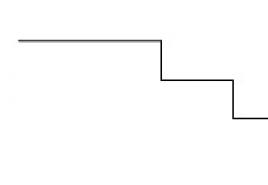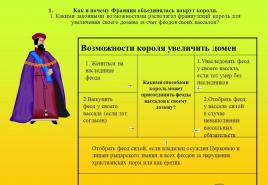Who knew the most foreign languages. A person who knows many languages \u200b\u200bas they say - the secrets of learning the languages \u200b\u200bof the world
Knowledge of another language not only allows you to communicate with foreigners, travel and get more money, but also expands the capabilities of the brain, delays senile dementia and increases the ability to concentrate. Read on to see why.
Notable polyglots
It is known that Leo Tolstoy spoke and read fluently in French, English and German, read Czech, Italian and Polish, and had a tolerable command of Ukrainian, Greek, Church Slavonic and Latin. In addition, the writer was engaged studying Turkish, Dutch, Hebrew and Bulgarian languages.
We assume that he did this not at all in order to boast of his abilities or to be able to talk with a foreigner, but to develop mental abilities, and simply because he could not remain in idleness, to live at least a day without mental labor. Until his advanced years, Tolstoy worked, happily communicated with every person and thought deeply about many phenomena.

Others famous polyglots: Empress Catherine II (5 languages), statesman commander Bogdan Khmelnitsky (5 languages), inventor Nikola Tesla (8 languages), writer Alexander Griboyedov (9 languages), Pope John Paul II (10 languages) and writer Anthony Burgess (12 languages).
It should be noted that there are a lot of polyglots among scientists, and especially linguists. The capabilities of the human brain are demonstrated by people who know several dozen languages \u200b\u200band dialects. Thus, our contemporary Willy Melnikov, a researcher at the Russian Institute of Virology, knows more than 100 languages, and Professor of Copenhagen University, linguist Rasmus Konstantin Rask spoke (and perfectly knew their grammar and linguistics) in 230 languages.

English as a brain trainer
In 2013, an experiment was conducted at the University of Edinburgh, Scotland, which revealed the ability to concentrate among 38 monolingual and 60 bilingual people under the age of 19. It is unclear whether young people learned the language because they knew how to concentrate, or acquired this ability through language, but the fact is that people who know two languages \u200b\u200bperformed better, regardless of when they started learning or in high school.
If theoretically we accept language learning for the cause, and the ability to concentrate for the effect, this can be explained as follows: when the brain needs to reorganize into a second language, it must concentrate on the most important and discard the unnecessary. This helps to quickly translate the necessary phrases in the mind and more accurately understand the interlocutor, without being distracted by unfamiliar words, but perceiving the whole phrase as a whole.

But the ability to concentrate is not the only bonus for the polyglot. Scientists concluded that stressing certain parts of the brain at any age contributes to the formation of new neural connections and their adaptation to existing circuits. Moreover, this happens both in childhood and at a young or mature age.
The above is confirmed by an experiment carried out at the Translation Academy in Sweden. Newly admitted students were offered learning foreign languages high difficulty (Russian, Arabic or Dari). The language had to be learned every day for many hours. At the same time, the scientists followed the students of the medical university, who were studying just as hard. At the beginning and at the end of the experiment (after 3 months), participants in both groups underwent MRI of the brain. It turned out that in students studying medicine, the structure of the brain did not change, but in those who intensively mastered the language, the part of the brain responsible for the assimilation of new knowledge (the hippocampus), long-term memory and orientation in space increased in size.

Finally, or any other language positively affects the preservation of mental abilities in old age. This was confirmed by the results of a study that lasted from 1947 to 2010. 853 participants in the study took an intelligence test at the beginning and end of the experiment, 63 years later. People who knew two languages \u200b\u200bor more showed mental and mental abilities higher than their peers, who spoke only their native language all their lives. In general, their brain condition was better than what is generally considered normal at this age.

Important lessons can be drawn from these studies:
- Our brains need stress, just like muscles and ligaments. If we want to maintain good mental faculties until old age, we must constantly keep the mind busy. And one of the most effective tools is foreign languages.
- A well-functioning brain almost always means a fuller and happier life, and certainly a life success. Therefore, if we need to achieve wealth, self-realization and respect for people, we need to learn languages \u200b\u200bor, if we already know how to read in a foreign language, start in-depth study of the English language and learn to communicate freely with its speakers.
- It doesn't matter when we start to learn a foreign language: at any age, the brain is rebuilt, new neural connections are formed in it, as well as an increase in its individual parts, which leads to a more complete perception of reality, an increase in mental abilities, including memorization and concentration.

In general, he says that he knows "only" 100. But he is being modest. In the course of the conversation, we calculated that Sergei Anatolyevich - head of the department of the Russian University for the Humanities, Doctor of Philology, Corresponding Member of the Russian Academy of Natural Sciences - is familiar with at least 400 languages, taking into account the ancients and languages \u200b\u200bof small endangered peoples. It only takes him three weeks to learn the language. Among colleagues, this 43-year-old professor has a reputation as a "walking encyclopedia". But at the same time he is distinguished by ... a bad memory.
The most difficult question for me is: "How many languages \u200b\u200bdo you know?" Because it is impossible to answer it exactly. Even 10 languages \u200b\u200bcannot be known equally. You can know 500 - 600 words and be perfectly able to communicate in the country. For example, I know English perfectly, because I have to travel and talk all the time. But I think that my German is better in passive. And you can speak badly, but read well. For example, I read ancient Chinese classics better than most Chinese. Or you may not read or speak, but know the structure, grammar. I cannot speak Negidal or Nanai, but I remember their vocabulary well. Many languages \u200b\u200bbecome passive, but then, if necessary, they return: I went to Holland and quickly restored the Dutch language. Therefore, if we count all the languages \u200b\u200bwith which I am familiar at different levels of knowledge, then there are at least 400 of them. But I actively speak only 20.

Do you feel your uniqueness? - No, I know a lot of people who already know several dozen languages. For example, 80-year-old Australian professor Stephen Wurm of languages \u200b\u200bknows more than me. And speaks fluently at thirty. - Collecting languages \u200b\u200b- for the sake of sports interest? - We must distinguish between linguists and polyglots. Polyglots are people who specialize in absorbing a huge number of languages. And if you are engaged in science, then language is not an end in itself, but a working tool. My main activity is comparing language families with each other. To do this, it is not necessary to speak every language, but you need to keep in your memory colossal information about roots, grammar, and the origin of words.

Are you still learning languages? - In 1993, there was an expedition to the Yenisei, they studied the Ket language - an endangered one, 200 people speak it. I had to teach him. But I learned the bulk of the languages \u200b\u200bat school and university. From the 5th grade, for five years at the Olympiads at Moscow State University, I was a prize-winner: I could write on a proposal in 15 Indo-European languages. At the university he taught mainly oriental. POLYGLOTS ARE BORN.

Are they born with the ability for languages \u200b\u200bor is this achieved through the efforts of constant training? - I thought about it a lot. Naturally, this is heredity: I have a lot of polyglots in my family. My father was a renowned translator, edited Doctor Zhivago and knew several dozen languages. My elder brother, a philosopher, is also a great polyglot. The elder sister is a translator. My son, a student, knows at least a hundred languages. The only family member not into languages \u200b\u200bis the youngest son, but he is a good programmer. - But how is a person able to store such an array of information in memory? - And I, paradoxically, have a very bad memory: I don’t remember phone numbers, addresses, I can never find the second time the place I’ve already been to. My first language, German, was very difficult for me. I spent a lot of energy just memorizing words. I always carried cards in my pockets with the words - on one side in German, on the other - in Russian, so that on the way to the bus I could check myself. And by the end of school, I trained my memory. I remember that in our first year at the university we were on an expedition to Sakhalin and studied the Nivkh language there, which is also dying out. I went there without preliminary preparation and just like that, on a dare, I learned the Nivkh dictionary. Not all, of course, 30,000 words, but most. - In general, how much time do you need to learn a language?

Three weeks. Although the eastern ones, of course, are much harder. It took a year and a half for Japanese. I taught him at the university for a whole year, the grades were excellent, but one day I picked up a Japanese newspaper and realized that I could not read anything. I got angry - and learned it myself over the summer. - Do you have your own learning system? - I am skeptical about all systems. I just take the textbook and teach from start to finish. It takes two weeks. Then - in different ways. You can tell yourself that you are familiar with this language and, if necessary, you will take it from the shelf and activate it. There were many such languages \u200b\u200bin my practice. If the language is necessary and interesting, then you need to read literature further. I have never used linguaphone courses. You need a native speaker to speak well. And the best thing is to go to the country and live there for a year.

What ancient languages \u200b\u200bdo you know? - Latin, ancient Greek, Sanskrit, ancient Japanese, Hurrian language, in which in the II century BC. e. spoke in ancient Anatolia. - And how do you manage to remember dead languages \u200b\u200b- there is no one to talk to? - I'm reading. There are 2-3 texts left from the Hurrian. There are languages \u200b\u200bfrom which two or three dozen words have survived. HOW ADAM AND EVE SPEAKED.

You are looking for the proto-language of humanity. Do you think that once all the people of the world spoke the same language? - We are going to discover and prove - all languages \u200b\u200bwere one, and then disintegrated in the thirtieth-twentieth century BC. Language is a means of communication and is transmitted as an information code from generation to generation, therefore errors and interferences are sure to accumulate in it. We teach our children without noticing that they are already speaking a little bit in another language. In their speech there are more subtle differences from the speech of the elders. Language changes inevitably. It takes 100-200 years - this is a completely different language. If the speakers of one language once went in different directions, then in a thousand years two different languages \u200b\u200bwill appear. And we have to find out - did 6,000 modern languages, including dialects, have a starting point? We are gradually moving from modern languages \u200b\u200bto ancient ones. It's like linguistic paleontology - step by step, we reconstruct sounds and words, approaching proto-languages. And now the stage has come when it is possible to bring together several large language families, of which there are now about ten in the world. And then the task is to restore the proto-languages \u200b\u200bof these macrofamilies and see if it is possible to bring them together and reconstruct a single language that Adam and Eve may have spoken.

ONLY CAN WANT IN RUSSIA. - Which language is the most difficult and which is the easiest? - The grammar is easier in English, Chinese. I learned Esperanto in an hour and a half. Difficult to learn - Sanskrit and Ancient Greek. But the most difficult language on earth is Abkhaz. Russian - medium. It is difficult for foreigners to assimilate only because of the complex alternation of consonants (hand-pen) and stress. - Are many languages \u200b\u200bdying? - All languages \u200b\u200bin the Urals and beyond the Urals, Nivkh and Ket are from the Yenisei family. In North America, they are dying out by the dozen. Terrible process. - What is your attitude to profanity? Is it rubbish? - These words are no different from other words. The comparative linguist is used to dealing with the names of the genitals in any language. English expressions are significantly poorer than Russian ones. Japanese is much less littered with swear words: it is more polite people.

Sergey Anatolyevich Starostin (March 24, 1953, Moscow - September 30, 2005, Moscow) - an outstanding Russian linguist, polyglot, specialist in comparative studies, oriental studies, Caucasian studies and Indo-European studies. The son of the writer, translator, polyglot Anatoly Starostin, brother of the philosopher and historian of science Boris Starostin. Corresponding Member of the Russian Academy of Sciences for the Department of Literature and Language (Linguistics). Head of the Center for Comparative Studies of the Institute of Oriental Cultures and Antiquity of the Russian State Humanitarian University, Chief Researcher at the Institute of Linguistics of the Russian Academy of Sciences, Honorary Doctor of Leiden University (Netherlands).
Who among the polyglots around the world knows (or knew) the most languages?
According to the academic dictionary of foreign words, POLYGLOT (from the Greek polyglottos - "multilingual") is a person who speaks many languages.
Legend has it that Buddha spoke one and a half hundred languages, and Mahomet knew all the languages \u200b\u200bof the world. The most famous polyglot of the past, whose abilities are attested quite reliably, lived in the last century - the curator of the Vatican library, Cardinal Giuseppe Caspar Mezzofanti (1774 - 1849)
Mezzofanti was legendary during his lifetime. In addition to the main European languages, he knew Estonian, Latvian, Georgian, Armenian, Albanian, Kurdish, Turkish, Persian and many others. It is believed that he translated from one hundred and fourteen languages \u200b\u200band seventy-two "dialects", as well as from several dozen dialects. He spoke sixty languages \u200b\u200bfluently, wrote poems and epigrams in almost fifty. At the same time, the cardinal never traveled outside Italy and studied this unthinkable number of languages \u200b\u200bon his own.
It's hard to believe in such miracles. Moreover, the Guinness Book of Records claims that Mezzofanti was fluent in only twenty-six or twenty-seven languages.
Among foreign linguists, the biggest polyglot was apparently Rasmus Christian Rusk, professor at the University of Copenhagen. He spoke two hundred and thirty languages \u200b\u200band compiled dictionaries and grammars of several dozen of them.
In Great Britain, journalist Harold Williams, who knows eighty languages, can be considered an unsurpassed polyglot today. Interestingly, Harold learned Greek, Latin, Hebrew, French and German when he was only eleven years old.
A new volume of the Guinness Book of Records in English has just been released. The most important polyglot on the planet in 1997 is recognized as forty-year-old Ziyad Fawzi, a Brazilian of Lebanese origin who speaks fifty-eight languages. Despite his outstanding abilities, Senor Fawzi is an eminently humble man. Modestly teaches foreign languages \u200b\u200bat the University of São Paulo. Translates modestly. Any of fifty-eight languages. And he wants to translate from a hundred. And - from any to any. He is now preparing textbooks for publication in several languages, using his method of rapid assimilation.
The most amazing of our polyglots is Willy Melnikova. Its story is simple and incredible at the same time. The guy was sent to the Afghan war. Further, as in the movie "The Diamond Arm": fell, woke up - a plaster cast ... Willie came out of a coma as a different person. But instead of diamonds, he got something more expensive - unlimited access to the world linguistic "Internet". Since then, Willie has been studying several languages \u200b\u200bevery year. Although "studying" is not quite the right word to describe what is happening. Eyewitnesses say: "The languages \u200b\u200bseem to come to him." Willie looks attentively at a person speaking an unfamiliar dialect, listens to his speech, then as if tunes in, trying different registers, and suddenly, like a receiver, "catches the wave" and gives out clear speech without interference ...
How many languages \u200b\u200bMelnikov actually knows is unknown. Every time an experiment is conducted to study his method, Willie meets with the speaker of another unique dialect. After the conversation, his personal "linguistic" asset is replenished with a new language ... "This is no longer a method, but something beyond," scientists say.
In the section on the question what is the name of a person who knows many languages \u200b\u200b(or just very smart)? given by the author Bloodsucking the best answer is many polyglot languages!
Answer from Seestern[guru]
quick wits
ingenuity
resourcefulness
Answer from Andrey Azarov[guru]
there are actually a lot of synonymous words in this context ...
polyglot
connoisseur
intellectual
smart ass
etc.
he, showing wonders of intelligence
knowledge
- you can write
the rest has already been written above
Answer from I-beam[guru]
if I'm not mistaken, then a person who knows many languages \u200b\u200bis called a polyglot, or maybe it's finally not from that opera xs karoch, but just very smart - a prodigy, a genius, and so on and so on
Answer from Suck in[guru]
Polyglot (from the Greek poly “many” and glotta “language”) is a person who speaks many languages.
The most prominent polyglot is the Italian cardinal Giuseppe Mezzofanti (1774-1849), who never left Italy, but was fluent in 38 languages \u200b\u200band fluent in 30 more languages; in addition, he knew 50 dialects of various languages.
Polyglots also include Anthony Grabowski, orientalist Arminius Vamberi, writer, poet and revolutionary Jose Risal, creator of Esperanto Ludwik Zamenhof, archaeologist Heinrich Schliemann, Pope John Paul II.
Answer from Ksenia[guru]
polyglot - a person who owns several in. languages.
An intelligent person is called an erudite.
You can say this: "Showing miracles of erudition ..."







